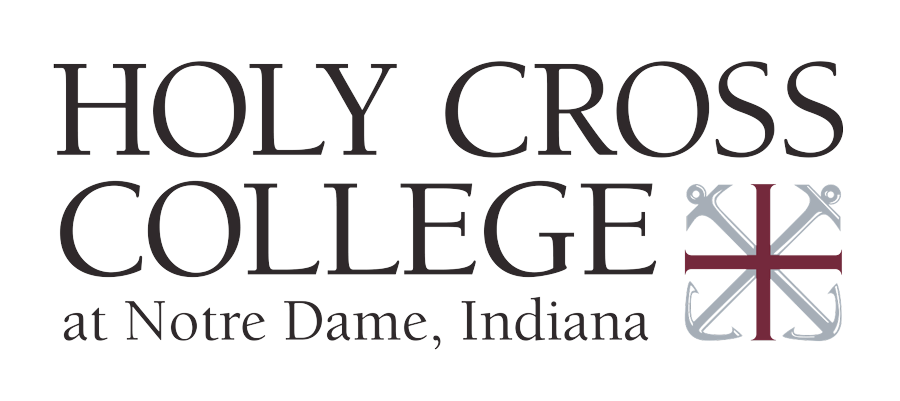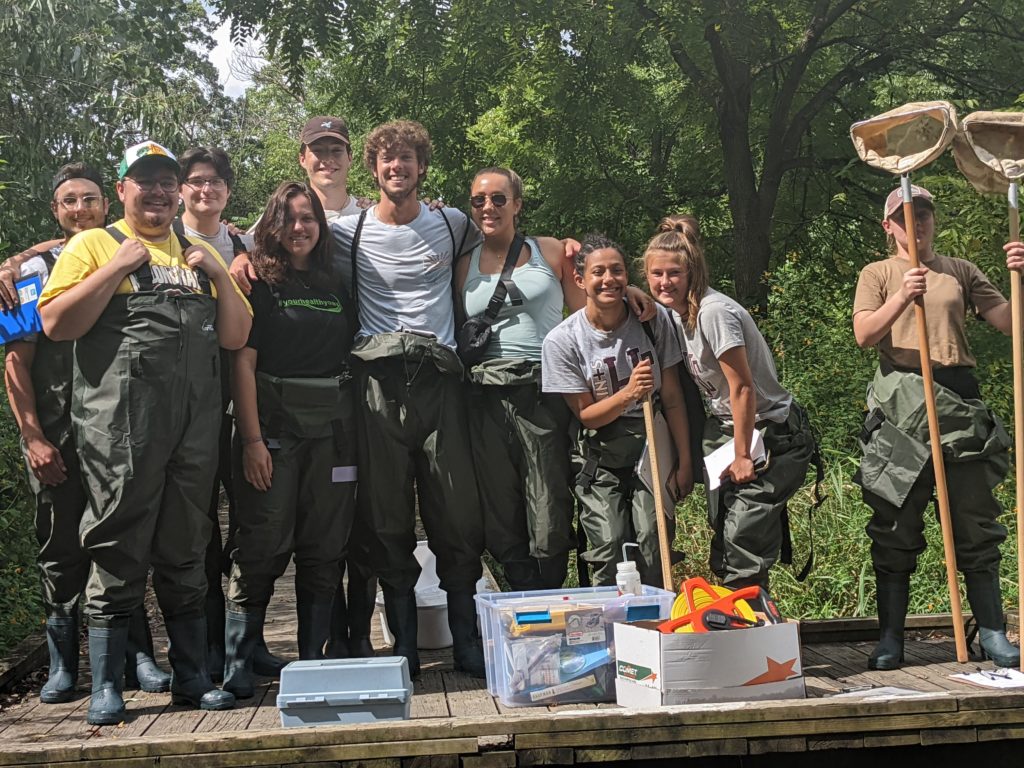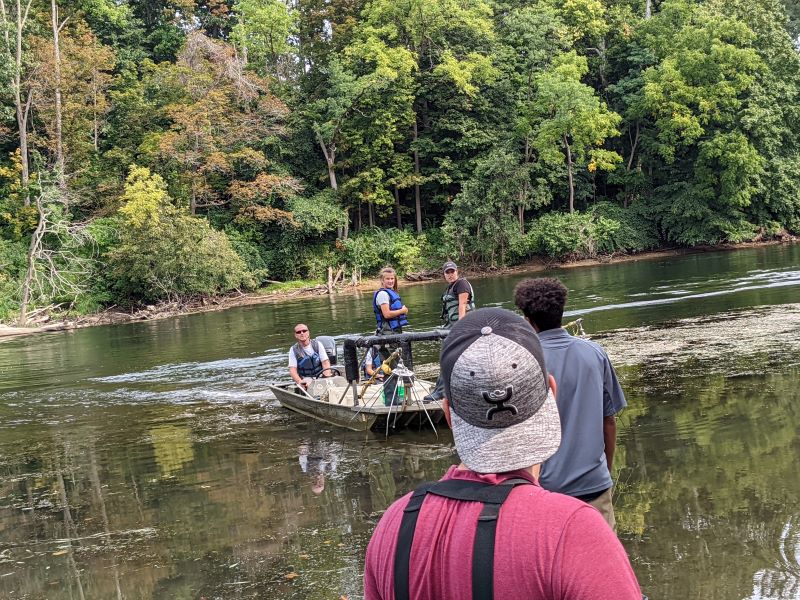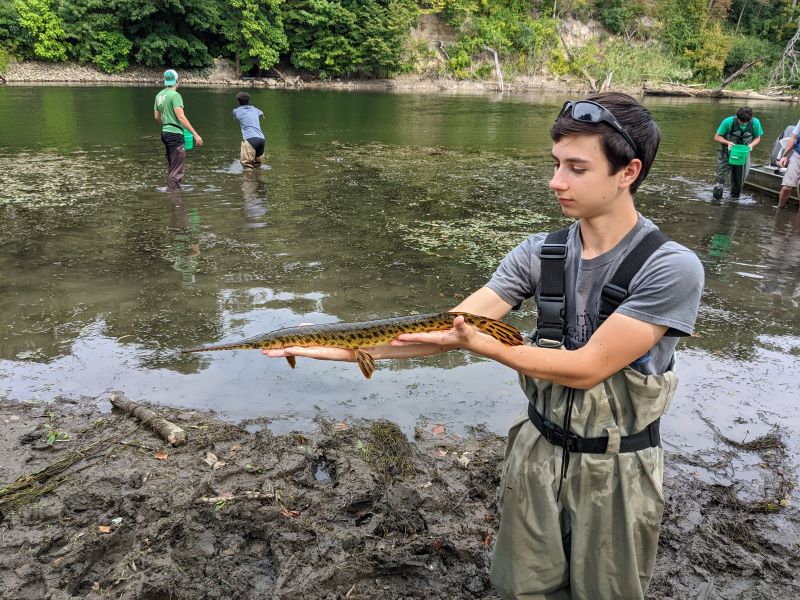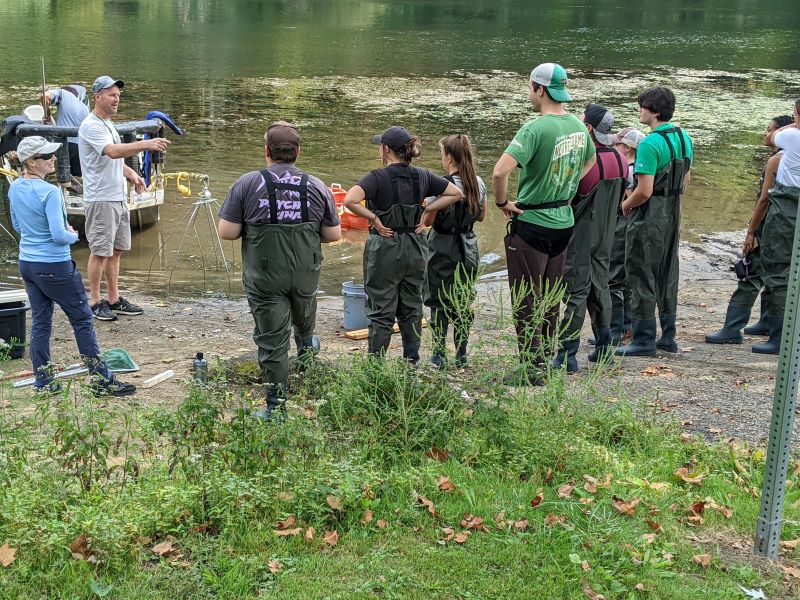Nestled on the St. Joseph River banks, Holy Cross College at Notre Dame, Indiana, provides a setting for unique aquatic exploration. Dr. Katherine Barrett, Instructor of Biology, Watershed Ecologist, and member of the St. Joseph River Basin Commission recently gave aquatic ecology students a hands-on, beyond-the-classroom fish lab experience.
“I am very fortunate to be in this unique position in which I have my feet in two worlds: academia and local government. In my role at the River Basin Commission, I work with many stakeholders to solve water quality issues, and I also get to collaborate with different programs. Daragh Deegan is one of my collaborators on several projects, one of which is a long-term analysis of PCB and mercury levels in fish of the St. Joseph River. Daragh runs a program in Elkhart, the Aquatic Community Monitoring Program, that collects fish and macroinvertebrate samples from the St. Joseph and Elkhart Rivers, and other smaller water bodies, with the goal of using the data to assign a grade that measures how healthy or clean the water is. Daragh is actively involved in outreach and education, and one of his favorite activities is to get students on the water to interact with the river and meet the fish. I had approached Daragh earlier this summer to ask if he’d be interested in leading a fish biology lab for my class, and he jumped at the opportunity,” notes Barrett.
During the program, the class rode an electroshocking boat to collect fish from the St. Joseph River.
“Students had the opportunity to catch fish using electricity, as well as process the fish afterward by identifying them, weighing, and measuring the length of each fish. Students worked in teams to do the fish processing and record data. The data they recorded will then be analyzed in a way that allows the students to see how fish can offer a multitude of ecological data that can inform humans on stream health,” said Barrett.
Aquatic ecology class
“Aquatic ecology is a new course at Holy Cross College as part of the new Environmental Science minor. Ecology is all about understanding how natural communities work, and aquatic ecology focuses on communities and ecosystems in the aquatic environment – what makes a river, a river? What makes a wetland a wetland? What makes a river healthy, what makes it impaired, and why should WE care about these habitats? My teaching pedagogy is largely based on the experiences I had as an undergraduate taking ecology, botany, and environmental chemistry, experiences in which I saw my professors learning alongside me and encouraging me to seek out answers to big ecological questions,” said Barrett. “As an aquatic ecologist at the St. Joseph River Basin Commission, I conduct stream monitoring, analyzing water quality data, and try to answer this question: How’s the water? I challenge my students in lectures to be able to think about the bigger picture context – the watershed – in which all aquatic ecosystems exist. The lecture focuses primarily on exposing students to the primary literature in aquatic ecology as well as building a foundation in the physical, chemical, and biological attributes of the major types of aquatic ecosystems. Weekly field trips to local waterways, including Brandywine Creek, Cobus Creek, Dowagiac River, and Juday Creek provide students the opportunity to see aquatic systems up close and personal, and to practice taking a variety of samples to characterize the health of our waterways.”
Opportunity goals
“I hope the students had a memorable experience conducting applied ecology that scientists can do for their careers! I also hope they enjoyed interacting with the fish, and to take this a step further, I hope this tangible interaction, of holding fish, of being on the St. Joseph River, the river that is in our backyard, instilled in them a sense of place and connection with the local ecology that makes our watershed so special,” notes Barrett. “Textbooks provide the facts and concepts that need to be learned in any field. The real learning happens when students are exposed to the very ecosystems they read about in the lecture. Experiential learning is invaluable for any field, and in aquatic ecology, the only way you can truly understand how a river or lake works is by taking measurements, recording observations, and looking at the biology of these systems up close and personal. In the natural & quantitative sciences, hands-on experience also engenders a sense of wonder and awe of the natural world, and whether students pursue ecological or medical degrees, learning the value of a tree, a bird, or a river will promote the appreciation for all forms of life.”
Future project
“I read a recent article in the Journal Frontiers in Ecology & Environment that integrating data collection with undergraduate science courses is a productive and effective way to engage students in environmental science while engaging with local community interests in protecting natural resources. I plan to embed annual monitoring of local waterways into both Aquatic Ecology & General Ecology labs so that students can learn how to collect, manage, and analyze ecological data that can contribute to ongoing monitoring efforts in our watershed. I plan to engage more of my collaborators in my ecology labs so that students can gain unique perspectives on career opportunities and inspiration in the realm of environmental science,” said Barrett.
